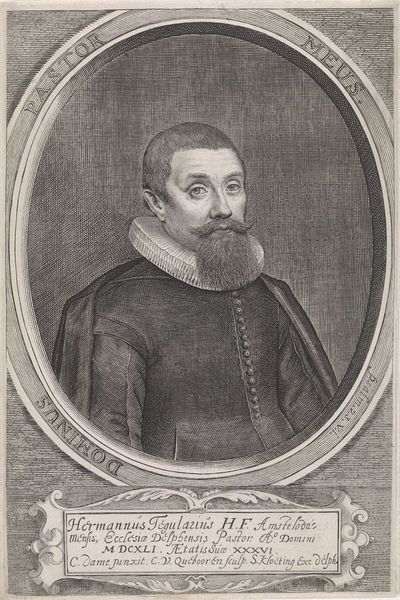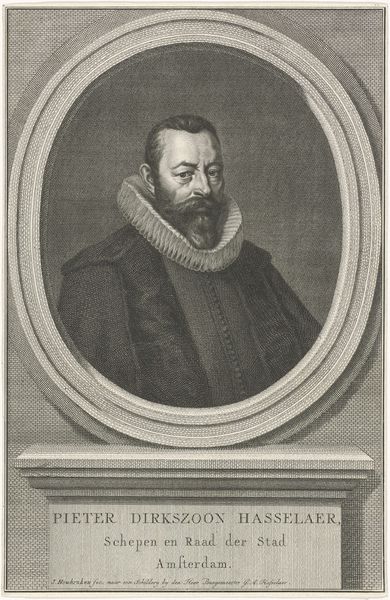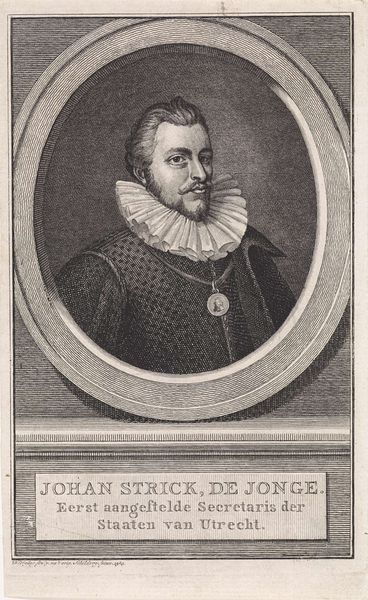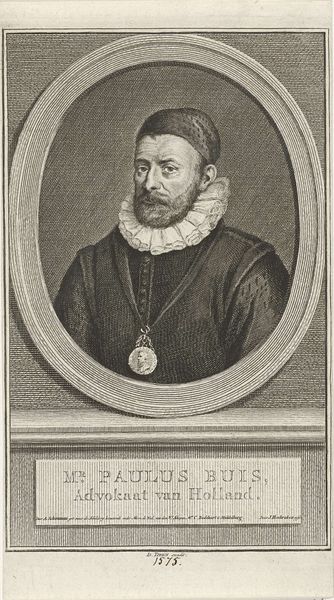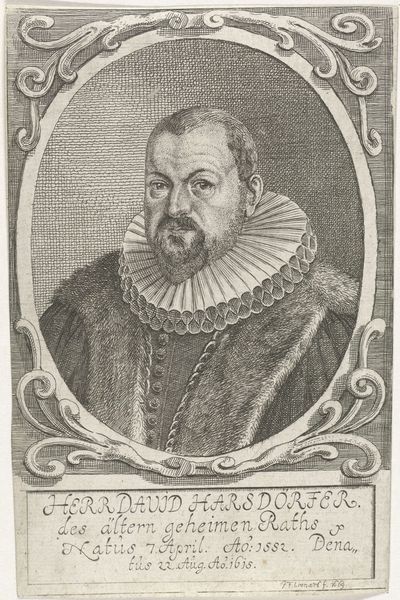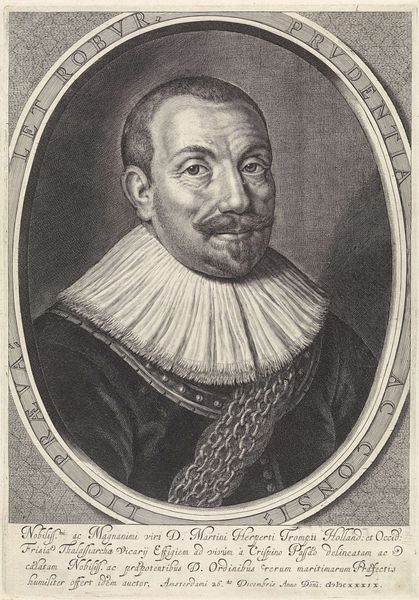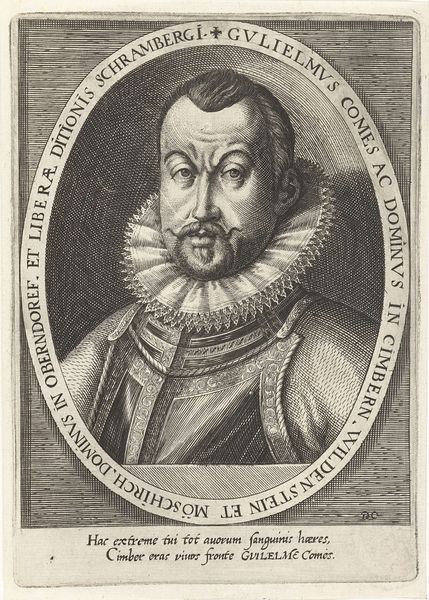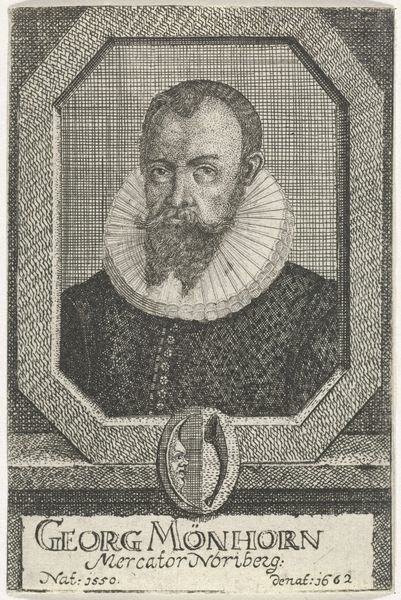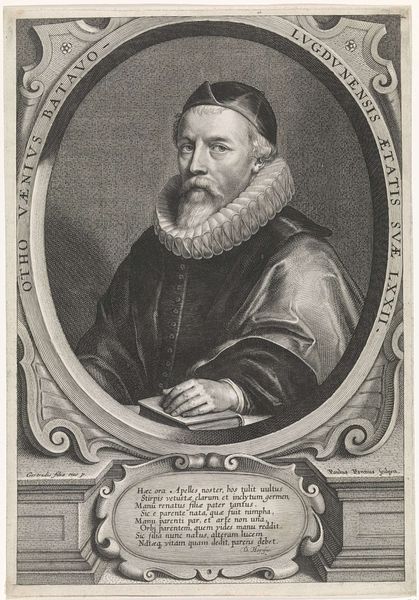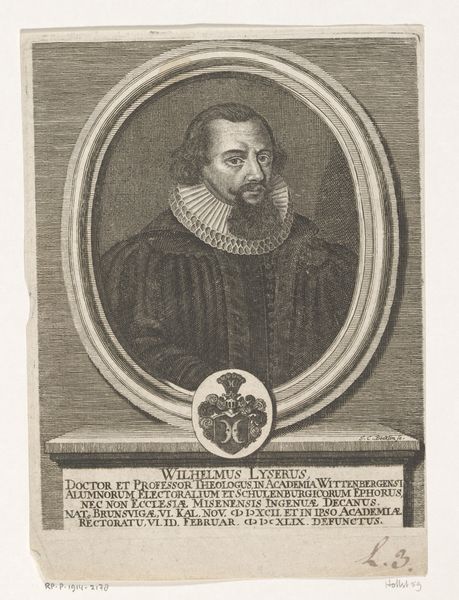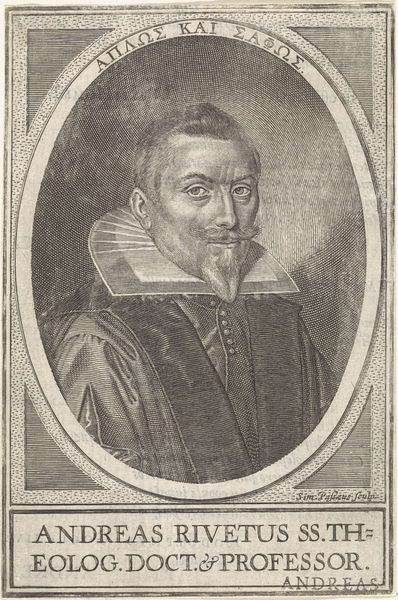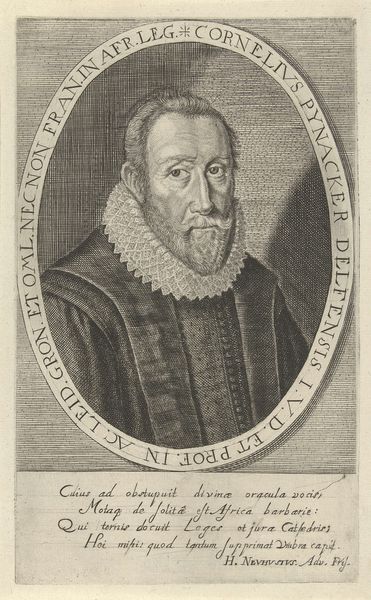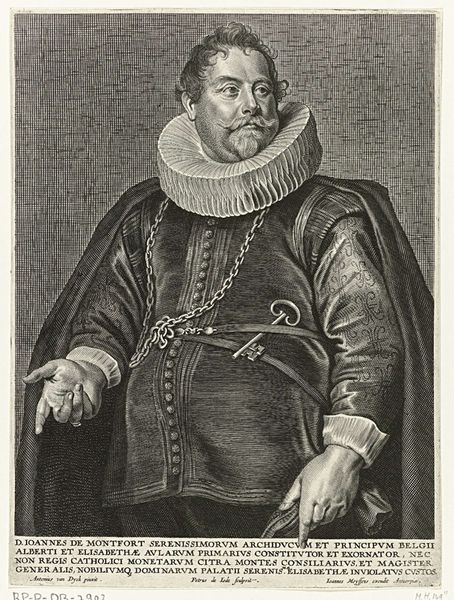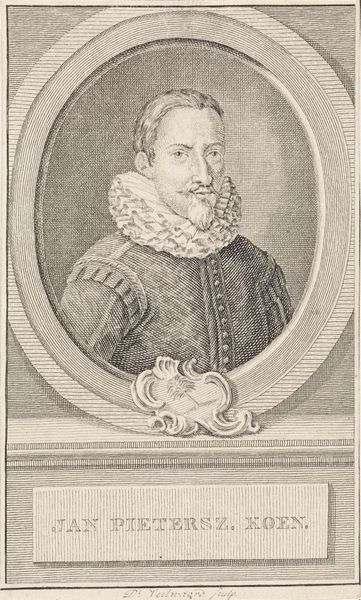
print, engraving
#
portrait
#
baroque
#
dutch-golden-age
# print
#
figuration
#
engraving
Dimensions: height 154 mm, width 98 mm
Copyright: Rijks Museum: Open Domain
This is a portrait of Jacques Franckaert, made by Wenceslaus Hollar in 1648. It's an etching, meaning that Hollar coated a metal plate with wax, drew this image into the wax, and then bathed the plate in acid. The acid bit into the exposed metal, leaving behind an image that could be inked and printed. Look closely, and you can see how this process shaped the image. The lines are crisp and precise, giving the portrait a remarkable level of detail, especially in the face and the intricate ruff collar. The hatching creates a sense of depth and shadow, defining Franckaert's features. Etching was a popular method for printmaking at the time. It allowed for relatively quick and efficient reproduction of images, making art more accessible to a wider audience. The labor involved was skilled but not as physically demanding as other printmaking techniques, reflecting the changing dynamics of art production in the 17th century. Ultimately, this print stands as a reminder of the interplay between material, technique, and social context in art history.
Comments
No comments
Be the first to comment and join the conversation on the ultimate creative platform.
